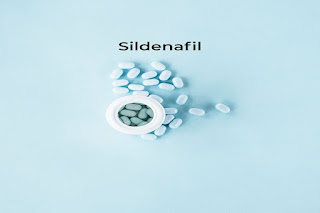A Comparative Analysis of Viagra and Levitra for Erectile Dysfunction
Viagra (sildenafil) and Levitra (vardenafil) are two of the most well-known and widely prescribed medications for the treatment of erectile dysfunction (ED). Both belong to a class of drugs known as phosphodiesterase type 5 (PDE5) inhibitors, designed to enhance the effects of nitric oxide in the body, thereby improving blood flow to the penis and facilitating erections. While these medications share a common goal, there are notable differences in their pharmacology, onset of action, duration of effectiveness, and side effect profiles.
Pharmacology and Mechanism of Action
Both Viagra and Levitra work by inhibiting the action of PDE5, an enzyme that breaks down cyclic guanosine monophosphate (cGMP). Elevated levels of cGMP promote smooth muscle relaxation in the blood vessels of the penis, allowing increased blood flow and facilitating an erection.
Viagra (sildenafil) was the first PDE5 inhibitor to be approved for the treatment of ED. It typically takes about 30 minutes to one hour to start working, with peak effectiveness occurring around two hours after ingestion. The duration of action for Viagra is generally four to six hours.
Levitra (vardenafil), on the other hand, is a newer PDE5 inhibitor. It has a similar mechanism of action to Viagra but is thought to have a faster onset of action. Some studies suggest that Levitra may start working in as little as 15-30 minutes, making it potentially quicker than Viagra. The duration of effectiveness for Levitra is also comparable, ranging from four to six hours.
Onset of Action and Duration
The onset of action is a critical factor for individuals seeking flexibility in their treatment plans. While both medications are generally effective, the time it takes for them to start working can influence the spontaneity of sexual activity.
Read Also: - The Ripple Effect of Hormone Imbalance on Health
Viagra typically requires around 30 minutes to one hour to take effect, making it necessary for users to plan ahead. On the other hand, Levitra's potentially faster onset of action, as early as 15-30 minutes, may be appealing to those who prefer a more rapid response.
In terms of duration, both Viagra and Levitra have similar windows of effectiveness, lasting between four to six hours. This allows users a sufficient time frame for sexual activity without the need for repeated doses within a short period.
Side Effects and Considerations
While Viagra and Levitra share similarities in their side effect profiles, individual responses may vary. Common side effects include headaches, facial flushing, nasal congestion, and dyspepsia (indigestion). Rare but more serious side effects, such as changes in vision and priapism (prolonged erection), are possible with both medications and require immediate medical attention.
Read Also: - everything about
fildena generic viagra
It's crucial to note that both Viagra and Levitra should not be taken with nitrates, as the combination can lead to a dangerous drop in blood pressure. Additionally, individuals with certain pre-existing medical conditions, such as cardiovascular issues or liver disease, should consult with their healthcare provider before using these medications.
Individual Preferences and Considerations
The choice between Viagra and Levitra often comes down to individual preferences, tolerances, and lifestyle factors. Some users may find that one medication works better for them in terms of onset of action, duration of effectiveness, or side effect profile. Factors such as food intake and alcohol consumption can also influence the performance of these medications.
Viagra and Levitra are available in various dosages, allowing for adjustments based on individual needs and responses. It's advisable for individuals to start with the lowest effective dose and titrate upwards if necessary, under the guidance of a healthcare provider.
In the realm of PDE5 inhibitors for erectile dysfunction, both Viagra (sildenafil) and Levitra (vardenafil) have proven efficacy and safety profiles. The choice between them depends on individual preferences, response times, and considerations such as side effects. Consulting with a healthcare provider is essential for determining the most suitable option based on an individual's medical history, lifestyle, and expectations. With proper guidance, individuals can make informed decisions to enhance their sexual health and overall well-being.
Read Also: - Understanding
the Difference Between Erectile Dysfunction and Impotence




Comments
Post a Comment